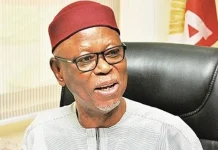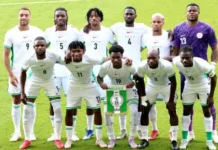Somewhat curiously, there appears to be belief that illegal transmission of pay television signal is no crime. And if at all it is, perpetrators seem to believe that it a less severe form of theft than piracy of CDs, DVDs and books for which, understandably, there is a larger market.
My conviction that illegal transmission television signal is deemed harmless grew stronger last week, following media reports of a crackdown by the Economic and Financial Crimes Commission (EFCC) on three Port Harcourt-based cable television operators- CANTV, Metro Digital TV and Communication Trends Limited (CTL)-all of which have been redistributing content exclusive to MultiChoice, StarTimes and Bein Media, the Qatar-based broadcast giants, among others, without authorization.
The three firms are members of the Association of Cable Operators of Nigeria (ACON), which claims to have the right to steal content and redistribute commercially.
To be clear, the alleged crime is no novelty. As a matter of fact, the trio have been at the game for years, according to their lawyers. CTL, for example, had its licence suspended in 2010 for pirating the signal of the defunct Hitv.
What, however, is new is the audacity to claim that their illegal activities benefit Nigerians in the low income brackets, who they claim cannot afford the tariff of MultiChoice, leading pay television service provider; and StarTimes.
To attract support for a clear economic crime dressed up as pro-people activity, the operators sought to invoke nationalistic fervor, serving the public a mish-mash of lies such as the well-worn allegation that MultiChoice seeks to crush competition (by frowning at the theft of its content) and claiming that they are licensed by the National Broadcasting Commission (NBC) to redistribute content-without the owner’s authorization! More crudely, the pirate operators sought refuge in the recent anti-foreigner attacks in South Africa, hoping it would reboot local anger, thereby deflecting attention from their crime.
Last Wednesday, one of the items on the order paper of the House of Representatives was a motion by Hon. Abdulganiyu Olododo. Titled “Increasing Trend of Copyright Piracy in Nigeria”, the motion invited attention to the relentless infringement of intellectual property rights thereby rendering creativity unattractive and impacting negatively on the socio-economic lives of Nigerians.
Olododo’s motion noted that copyright piracy is defying the efforts of government agencies, including the Nigerian Copyright Commission (NCC), and threatening the country’s economic well-being.
This point has been studiously ignored by the operators who, according to reports, were billing subscribers between N3, 000 and N5, 000 monthly for content exclusively owned by others. Their template seemed to have appealed to the now defunct TStv, which briefly came to the market last year, falsely claiming to have rights to premium sporting, news/ general entertainment content and offering such as impossibly low rates. But before it rolled out, CNN, FOX Entertainment and Bein wrote to the NCC to state that there was no content redistribution agreements between them and TStv. Bein, in a recent letter to the NCC, restated that it has no content rights to operate in Nigeria, Ghana, Liberia and Kenya among other countries in sub-Saharan Africa.
But ACON members, claimed they have been paying licence fees as well two per cent turnover to the NBC, whose code, they further claimed, bars a single operator from having exclusive rights to major sports content.
In a letter to the EFCC by their lawyers, the pirates claimed that the anti-graft commission has no business in the matter, as the crime alleged is not financial in nature. But Abdulrasheed Bawa, head of EFCC’s Port Harcourt Zonal Office, said the EFCC is empowered to deal with crimes that are financial and economic in nature.
Section 40 of the EFCC Act defines “economic crime” as “non-violent criminal and illicit activity committed with the objectives of earning wealth illegally”. According to the act, it includes any form of fraud, narcotic drug trafficking, money laundering, embezzlement, bribery, looting and theft of intellectual property and piracy among others.
The NCC also has a dim view of piracy. Section 51(1) of the Copyright Act defines broadcast piracy as the rebroadcast commercial scale, without authorization, of content protected by copyright.
How else the operators want their activities perceived other than theft eludes me. The NCC on 26 January 2018, according to nlpiw.com (website of the Nigerian Law Intellectual Property Watch), arrested one Idoni Joseph Osagie in Osogbo, Osun State. The commission stated that Osagie was caught with broadcast piracy equipment such as DStv and GOtv decoders, coaxial cables and signal boosters.
In September 2018, the NCC threatened two Kaduna-based cable television operators, ABG and QTV, with suspension for unlicensed broadcasting.
Augustine Amodu, NCC’s Enforcement Director in Kaduna, said the Commission received letters from Aljazeera, Bein and Canal Plus among other international broadcasters that their content was being redistributed illegally.
In its letter summoning the two operators to its headquarters in Abuja, the NCC wrote: “After doing vigilant surveillance and investigation, we have found out that the original and rightful owner of the content you are transmitting is MultiChoice. But ABG has gone behind without getting due licensing from MultiChoice to continue to operate on the cable of MultiChoice. The only people with the exclusive license to broadcast English Premier League, UEFA Champions League, LaLiga among others is MultiChoice Nigeria. So, we are here to issue a very stern warning to you to desist from this illegal act or run the risk of been shut down.”
Also in Warri and Ughelli in Delta State, the NCC seized illegal broadcast equipment worth N36.1million in anti-piracy operations carried out between 13 and 16 March 2018. Similar operations, leading to arrests and prosecution, are routinely carried out by the NCC-relying on extant legislation.
Bizarrely, the operators busted in Port Harcourt believe that their clearly criminal enterprise deserves the support of Nigerians, who they hope would get red-eyed with rage at the reference to MultiChoice’s South African origins, hence the disingenuous use of the recent xenophobic attacks, cheap talk of monopoly and legless pro-people stance.
In any language, stealing, even with the desire to give to the less privileged, spells crime in bold letters. Cheap appeal to nationalism or patriotism cannot deodorize a fetid activity.
Mabadeje, a public affairs commentator, writes from Benin



























